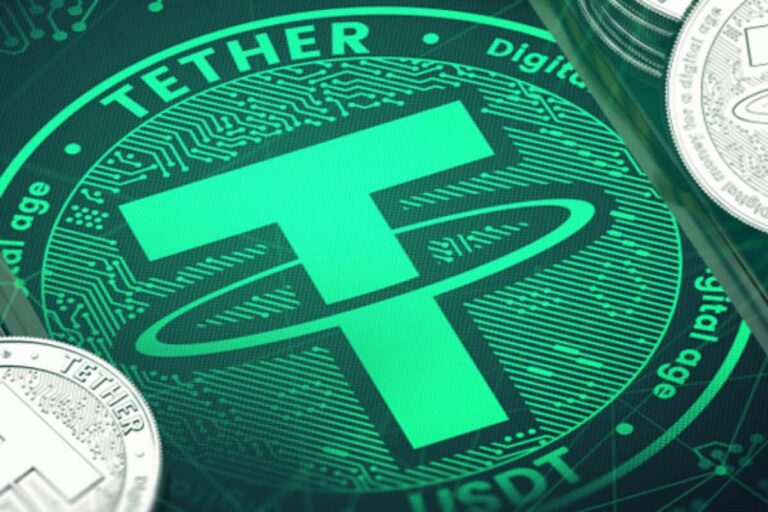Tether Holdings, which operates stablecoin USDT, is considering lending to commodity traders as it looks for ways to distribute significant profits. The company is already in touch with several companies in the commodity industry about US dollar financing, the people said.
This could transform a market that has relied on credit provided by legacy banks since time immemorial.
Tether reinvents commodity trading with USD financing
Tether Holdings has reportedly held discussions with several commodity trading companies about the possibility of US dollar financing. This is especially important as small-scale commodity traders often rely on credit facilities to finance the global transportation of oil, metals and food. Still, changing markets and tightening credit have made financing more difficult for these companies.
Companies in countries such as Venezuela and Russia are already using USDT to avoid the US dollar due to sanctions. The company’s successful efforts can only help further expand the adoption of stablecoins beyond the crypto market and into more traditional financial sectors.
The recent surge in the supply of stablecoins on the TON blockchain only highlights their growing importance in enhancing liquidity and network utilization.
Lines of credit are a lifeline for commodity traders who transport millions of dollars in oil, metals and food around the world. Giant traders like Trafigura Group maintain huge networks of credit. Trafigura has $77 billion in credit facilities with approximately 150 financial institutions. For small businesses, securing funding to continue operating is often a struggle.
Indeed, that in itself makes Tether’s proposition unique in that it provides funding without having to go through the onerous regulatory requirements of traditional lenders. It probably offers faster settlements and reduced trade frictions, making it very attractive to traders looking for speed and access to capital.
Tether’s Ardoino opens up new markets
Private credit is gradually gaining momentum in commodity trade finance, and the company claims it has the necessary capital to engage in this field. In its latest financial filings released in July, the company reported first-half 2024 profits of $5.2 billion.
Tether CEO Paolo Ardoino recently confirmed that the company is exploring opportunities in the commodity space, emphasizing that these discussions are still in the early stages.
He declined to reveal specific investment plans for the company’s commodity trading, but said the strategy was still “in a pilot period.” Mr. Ardoino expressed interest in exploring different commodity trading vehicles, suggesting that there could be significant growth potential in this area.
A recent example of Ripple Labs shows how stablecoins have become important. The company has also been active in its stablecoin efforts, recently minting millions of Ripple USD (RLUSD) tokens as part of its ongoing development and testing efforts. The move also reflects a broader trend among blockchain companies to integrate stablecoin solutions into their ecosystems.
Targeting post-war merchandise trade
The commodity trading industry is recovering from a difficult period marked by significant price fluctuations following Russia’s invasion of Ukraine. This created liquidity issues, but ultimately led to record profits.
The dispute highlighted the industry’s dependence on the US dollar and allowed the government to impose sanctions on natural resource exports. As a result, there is growing interest in the use of stablecoins in unregulated financing methods and trade transactions.
To capitalize on these trends, the company has assembled a dedicated team focused on developing trade finance opportunities.
The company’s investment arm, Tether Investments, reviews dozens of proposals each month, with a focus on areas such as alternative financial infrastructure for emerging markets, artificial intelligence and biotechnology.
✓ Share:
Teuta
Teuta is a veteran writer and editor with over 15 years of experience in the macroeconomics, technology, cryptocurrency and blockchain industries. He started his career in 2005 as a lifestyle writer for Cosmopolitan magazine in Croatia and went on to cover business and economics for prestigious publications such as Forbes and Bloomberg. Influenced by figures like Don Tapscott and Bruce Dickinson, Teuta embraced the blockchain revolution, believing that cryptocurrencies are one of humanity’s most important inventions. Her fintech efforts began in 2014 and focused on cryptocurrencies, blockchain, NFTs, and Web3. Known for his excellent teamwork and communication skills, Teuta holds a double master’s degree in political science and law, loves punk rock and Chablis, and has a passion for shoes.
Disclaimer: The content presented may include the personal opinion of the author and is subject to market conditions. Do your market research before investing in cryptocurrencies. The author or publication assumes no responsibility for your personal financial loss.


